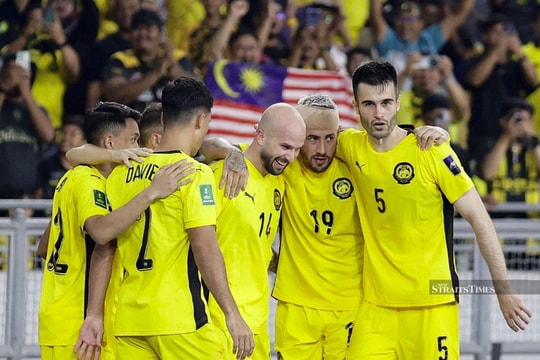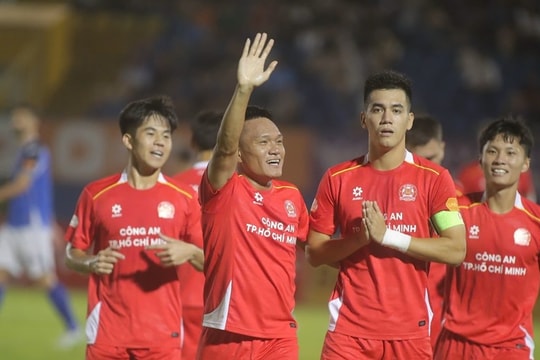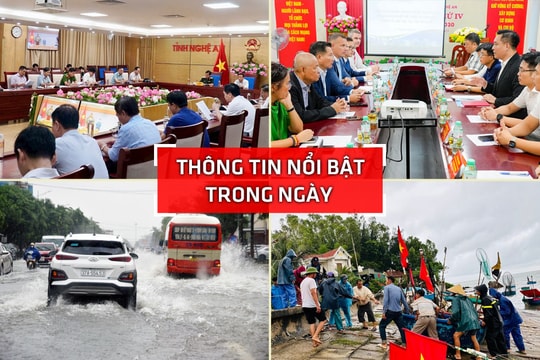Street children in Hanoi in British newspaper
Writer Maeve McClenaghan writes in the Guardian about the efforts of a young man who shared the same situation to help street children in Hanoi.
 |
Homeless children sleep on the streets of Hanoi. Photo: Reuters |
As night falls in Hanoi, the crowds around Hoan Kiem Lake begin to thin. Do Duy Vi scans through teenagers hunting Pokemon on their phones, women exercising and street vendors hawking their remaining wares.
“You have to know how to recognize the signs,” Vi said. “Sometimes they will look disheveled or carry bags of clothes, sometimes you can look at the way they sit.”
Every night, Vi searches for street children sleeping on the streets of the Vietnamese capital. "They are considered the poorest people. In Vietnamese, they are called street children," Vi explained to the British writer.
Vi, 29, is the outreach manager for Blue Dragon, an Australian-founded NGO that has been helping street children in Vietnam since 2004. He has been in the job for seven years.
"I was a street kid myself when I was 14 or 15," Vi said. "My parents were very poor. We lived in a small village about 130 kilometers from Hanoi. When I was 14, I decided to go find a job, so I got on a bus and came here."
For two years, Vi slept on the floor of a motel and shined shoes. On a busy day, he could earn about 80p (more than 20,000 VND). Vi still remembers the hunger and fear of those days. "I was beaten a lot," he said.
No one is sure how many homeless children there are in Vietnam. A 2006 Human Rights Watch report estimated there were 23,000. UNICEF said the official figure dropped to 7,300 in 2014. But these statistics do not accurately reflect the proportion of children living and working on the streets, according to Vijaya Ratnam-Raman, UNICEF's head of child protection in Vietnam. "They used to be more visible, but less visibility does not necessarily translate into a decrease in their actual numbers."
Vi is now happily married with a young daughter. A meeting 14 years ago changed his life. On a very hot summer day, Vi was looking for customers to shine shoes when he met Michael Brosowski, a teacher from Sydney. Mr. Brosowski had opened a free class for poor children. He taught in a small cafe on Sunday afternoons.
"Vi was really charming," Brosowski recalls. "He was clearly a smart and bold kid. He gave me a big smile and just said 'Shoeshine!' - the only English word he knew. We sat in the little courtyard outside my house. He shined my shoes while we talked."
Vi started taking Brosowski’s classes and a year later, his mentor founded Blue Dragon. The center now provides free meals, clothing and classes to more than 200 street children a year. They also have a “shelter” for them, with about 30 beds, and it’s always full.
Vi lived at the center for five years, and then returned to work for Blue Dragon to help children who had suffered the same fate. He was called the organization's "miracle worker." "He reached out to kids no one else could reach," Brosowski explained.
"I think it's because we have something in common, both me and the kids have gone through similar problems," Vi said.
 |
Do Duy Vi with street children in Hanoi. Photo: Maeve McClenaghan |
Other young people have followed in Vi’s footsteps. Blue Dragon now has a formal social work training program, to help more street children become staff for the organization, which reaches out to others in similar situations. Four have just completed the program.
Vi combines his nightly trips with mentoring students interested in social work. Tonight, a quiet 16-year-old boy accompanied him.
He walked across the crowded square to chat with a group of boys he knew. Minh (name changed), 12, hopped forward on crutches and hugged Vi, whose arms were covered in scars. The boy had lost a leg to an electric shock and his family could not afford medical treatment. Vi was urging Minh to stop begging and come to the organization’s housing complex.
“There are gangs here,” Vi said, and “worse, we know there are a lot of pedophiles coming to this area, both Vietnamese and foreigners. These children face a lot of abuse.” He said one child he met was “sexually propositioned” six times by men on his first night on the streets.
Vi stressed that building trust is a process that takes time. "When you first meet the kids, you know they are not telling you their real story. So at first I usually don't ask too many questions. I just try to be friendly, talk to them about sports, like football, and tell them about my time as a street child.
He recalled a boy he met two years ago. The 14-year-old had fallen prey to pedophiles and was using crystal meth to numb the pain.
"I persuaded him for months, I said: if you need money, we can help you, but he refused. The boy destroyed himself - he kept going back to pedophiles and drugs," Vi said.
"Every time we met, the boy cried. I didn't know what to do. After three months of approaching him, I had said and done everything I could think of. People asked me why I continued. I replied 'I don't know - all I can do is be his friend'."
Eventually, Vi's persistence paid off. A year ago, the boy came to the shelter, and now it is his home. "He never went back to his old life," Vi said proudly. After that, he continued walking around the streets, looking for other lives to help.
According to VNE
| RELATED NEWS |
|---|








